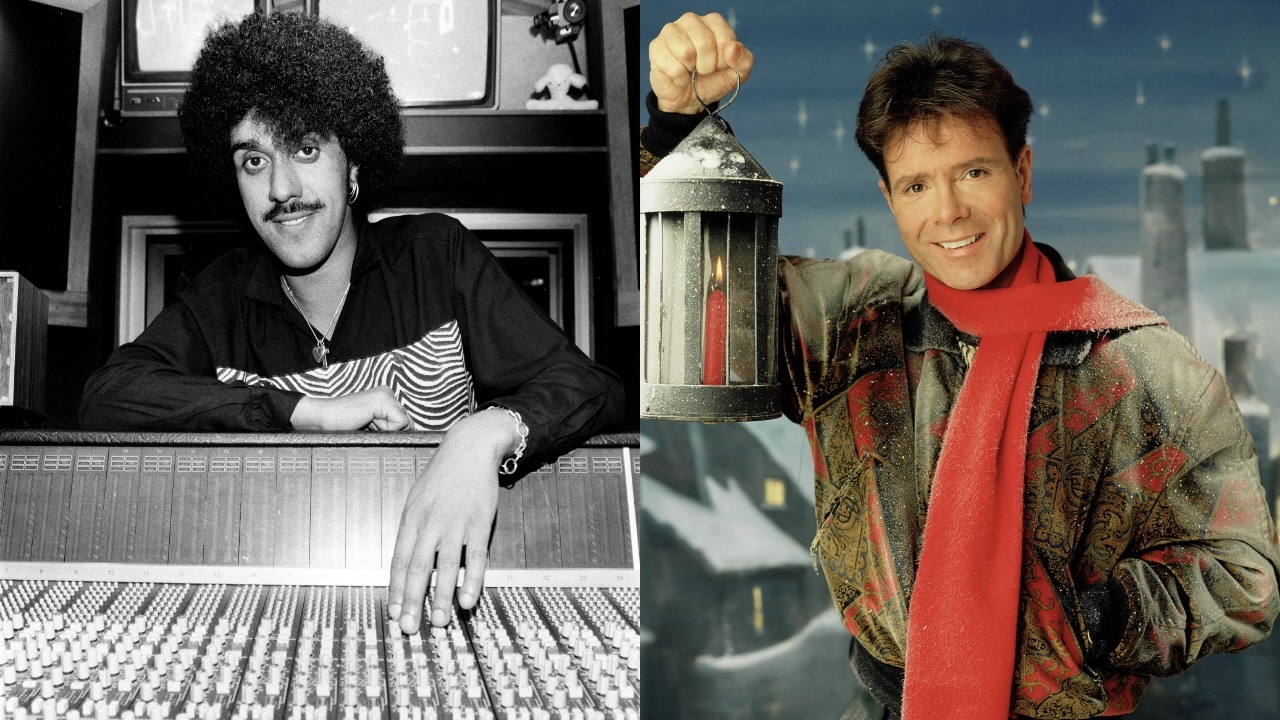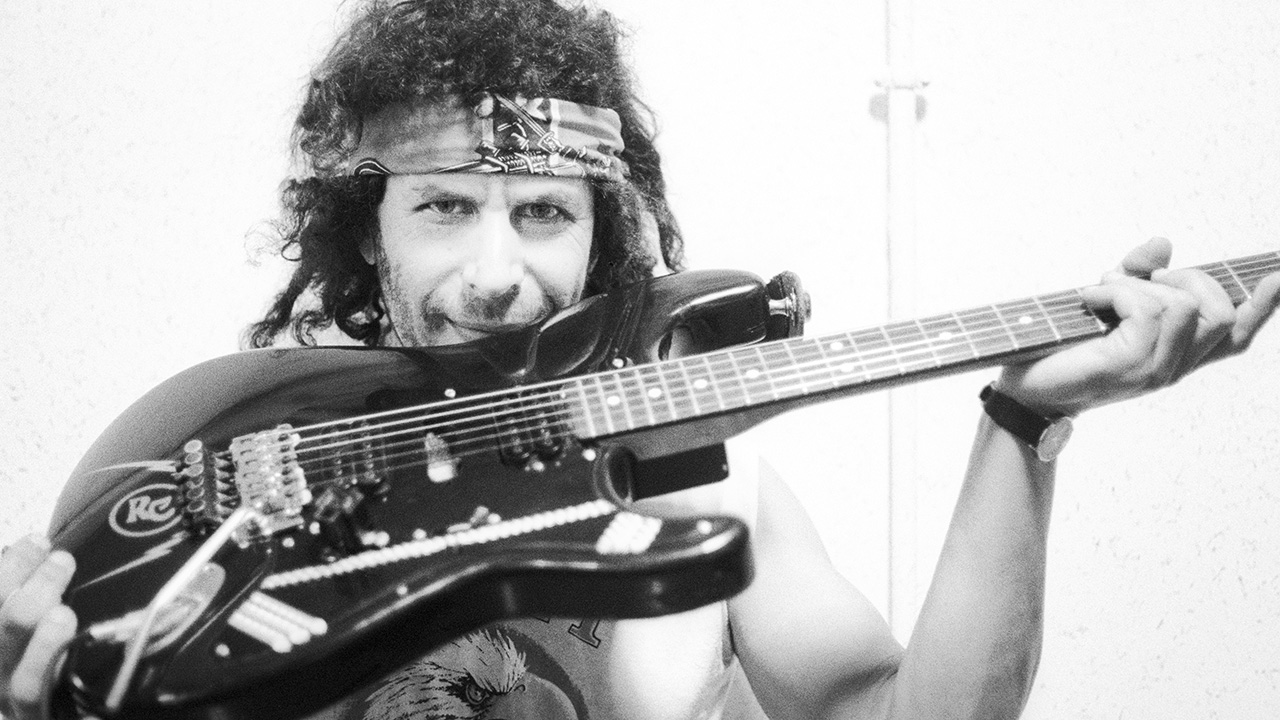Phil Lynott once invited Cliff Richard into the studio to hear new Thin Lizzy songs while his dealer chopped out heroin behind the squeaky-clean pop star
Thin Lizzy's studio sessions in Paris for 1979's Black Rose album were punctuated by heavy drug use, and Phil Lynott wasn't particularly careful about hiding that fact

Select the newsletters you’d like to receive. Then, add your email to sign up.
You are now subscribed
Your newsletter sign-up was successful
Want to add more newsletters?

Every Friday
Louder
Louder’s weekly newsletter is jam-packed with the team’s personal highlights from the last seven days, including features, breaking news, reviews and tons of juicy exclusives from the world of alternative music.

Every Friday
Classic Rock
The Classic Rock newsletter is an essential read for the discerning rock fan. Every week we bring you the news, reviews and the very best features and interviews from our extensive archive. Written by rock fans for rock fans.

Every Friday
Metal Hammer
For the last four decades Metal Hammer has been the world’s greatest metal magazine. Created by metalheads for metalheads, ‘Hammer takes you behind the scenes, closer to the action, and nearer to the bands that you love the most.

Every Friday
Prog
The Prog newsletter brings you the very best of Prog Magazine and our website, every Friday. We'll deliver you the very latest news from the Prog universe, informative features and archive material from Prog’s impressive vault.
As Scott Gorham remembers it, it was in Paris, in the winter of late '78/early '79, that Thin Lizzy's formerly recreational drug use started to become a problem.
That the band were becoming increasingly blasé about their habits was evident when Phil Lynott started snorting cocaine in front of producer Tony Visconti in-between his vocal takes on anti-addiction anthem Got To Give It Up. But it was when Lynott invited clean-living pop star Cliff Richard into the band's booth at Pathé Marconi EMI Studios while a heroin dealer dished out his supplies that the recklessness of his actions started ringing alarm bells even to his partner-in-crime Gorham.
"It wasn't until [the recording of] the Black Rose album that we really got in trouble," Gorham told this writer in 2019.
As a teenager growing up in California, Gorham was thrown into jail twice for drug dealing, and his decision to move to London in the spring of 1974 was at least partially motivated by an awareness that his life was only going to get bleaker if he stayed.
"Moving to England saved my ass," the guitarist told this writer in 2019. "If I hadn't come here, I'd surely have fucked up my life."
Gorham had already tried heroin long before he joined Thin Lizzy, admitting "That was one of the things I was getting into that London saved me from." And yet, despite this, while in Paris, he had little hesitation in joining Lizzy's charismatic leader in indulging once more.
"I was sitting in Phil's room, and he was like, 'Do you know what this is?' Yeah, I do know what this is. 'Do you want some?' Yeah, I do. And then the heroin cycle started up. It took another year before we were professional drug takers."
In Cowboy Song: The Authorised Biography of Philip Lynott, Gorham spoke openly about his first steps to addiction.
"In Paris the dealers were beating the door down," he told biographer Graeme Thomson, "and of course we let them in, which was just madness."
"Cliff Richard was recording in the same studio, and Phil said, 'Come on, let's drag Cliff over and see what he thinks.' So we sat Cliff in front of the desk, and right behind him there's this fucking drug dealer, chopping out a line of smack. I'm looking at Cliff and, God bless him, he didn't look over his shoulder one time, he doesn't even acknowledge that this guy is even in the room. But I thought, this has got to be uncomfortable for him."
Speaking to this writer in 2019, Gorham said that he was initially fairly relaxed about using heroin again, admitting "This sounds harsh, but there just hadn't been enough dead rock stars at that point."
"You knew people died from it, but those deaths were few and far between, so you just thought, 'It's never going to happen to me.' Once you've broken the barrier of doing it the first time, you're not afraid of it. But we should have been, because bad shit did happen."
Speaking on Good Morning Britain in 1984, Phil Lynott said, "The frightening thing about heroin is that... and again, without trying to glamourise the drug at all... is that it's very enjoyable to take. It cuts off reality. If you've got a lot of problems, and you wanna just... I mean, it'd be so easy for me to just jump up on television and say, Hey, this is the pits, don't do it! The thing that's never put across on television very well is how enjoyable it can be."
On January 4, 1986, Lynott died from pneumonia and heart failure due to septicaemia developed as a result of his addiction to heroin.
Scott Gorham, who had visited his friend just three weeks earlier, recalls hearing the news and breaking down crying.
"I heard my wife Christine take a phone call, and she dropped the phone and started bawling her eyes out," the guitarist remembers. "And I just knew. It was a horrible scene."
Sign up below to get the latest from Classic Rock, plus exclusive special offers, direct to your inbox!

A music writer since 1993, formerly Editor of Kerrang! and Planet Rock magazine (RIP), Paul Brannigan is a Contributing Editor to Louder. Having previously written books on Lemmy, Dave Grohl (the Sunday Times best-seller This Is A Call) and Metallica (Birth School Metallica Death, co-authored with Ian Winwood), his Eddie Van Halen biography (Eruption in the UK, Unchained in the US) emerged in 2021. He has written for Rolling Stone, Mojo and Q, hung out with Fugazi at Dischord House, flown on Ozzy Osbourne's private jet, played Angus Young's Gibson SG, and interviewed everyone from Aerosmith and Beastie Boys to Young Gods and ZZ Top. Born in the North of Ireland, Brannigan lives in North London and supports The Arsenal.
